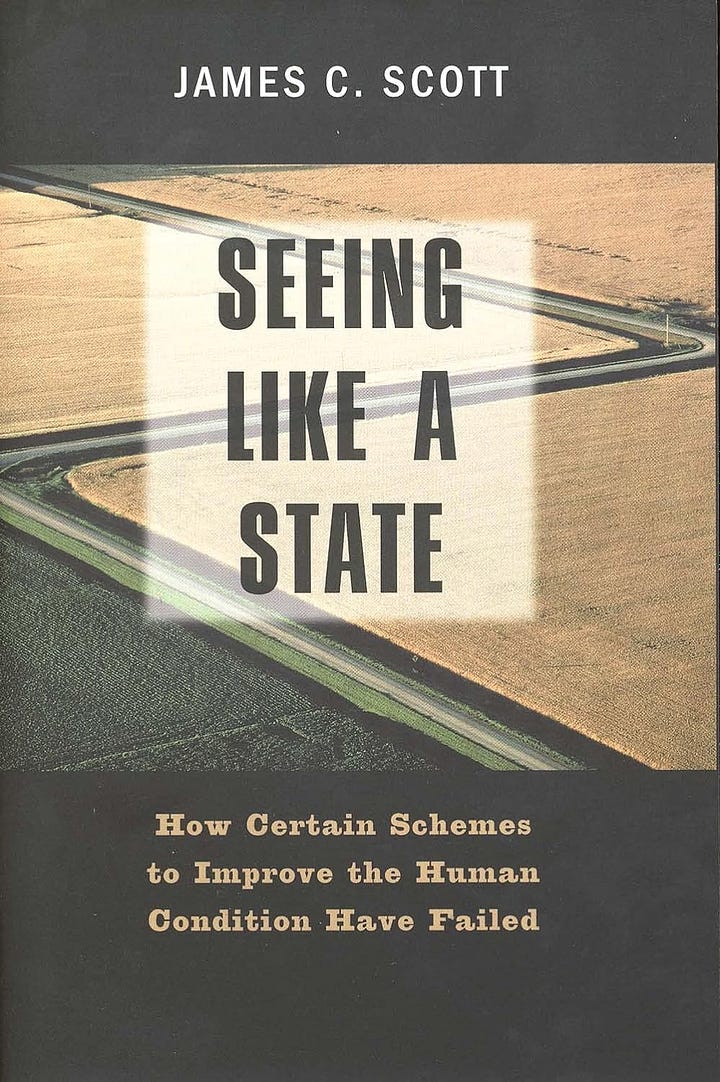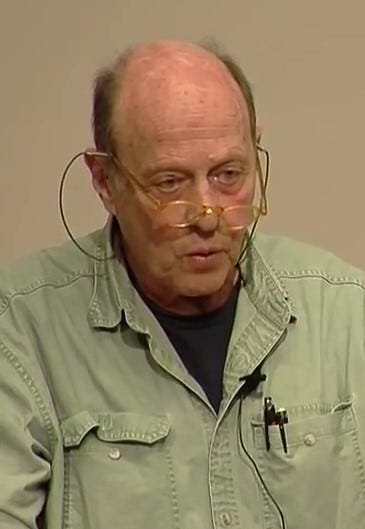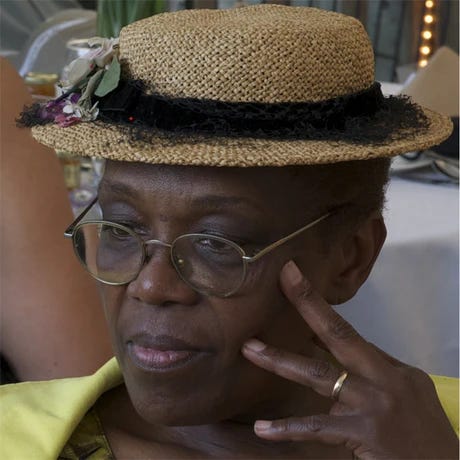Maybe the worst fingernails-on-chalkboard accusation in American political culture is that teachers and professors are “indoctrinating” their students. It’s an apex trope in a thick ecosystem of ideological explanations for why people don’t cleave perpetually to the values that the ideologues believe to be a natural baseline. As such, the claim of indoctrination tends to come from the right, which has the most urgent beliefs about how people ‘normally’ have been and an inability to envision why or how they might change of their own accord. (Which aligns with the persistent illiberalism of Western conservatism, which generally doesn’t put much stock in individual reason or a secular vision of a transformational progress towards greater equity, justice and liberty.)
Truth be told, however, you can find milder versions of people bitching about ‘indoctrination’ through education any time they believe that there are people who have the wrong ideas in improbably great numbers, e.g., any time that the person doing the bitching thinks they’re correct in their own views and is perplexed not to be surrounded by others who think the same. This is even the case within academia. In fact, it’s rather depressingly common in any discipline as new theoretical dispositions, new methods, new ideas, are advocated among the incoming generation. For the older generation nearing retirement, this kind of change presents as a mystery. After all, they haven’t been teaching their students those ideas or texts or methods, so where the hell did all of that come from? It must be from the next generation down the hierarchy, and they must be doing it rather esoterically, since they weren’t professing those ideas back when they were hired. (In a pinch, the assumption that it’s indoctrination performing by malign outside influences will do, but at least in the social sciences and humanities, even that accusation can refract badly on the accuser, in that they ought to have some knowledge of wider cultural and political trends.)
“Indoctrination” saves time. You don’t have to treat the ideas you disdain with any seriousness in and of themselves, nor engage in debate or dialogue with those who profess and practice them. The accuser may even think of themselves as kindly disposed towards the targets of their ire: it’s not their fault, they were brainwashed.
Which is precisely why the accusation is so aggravating, whether it’s coming from right-wing demagogues seeking scapegoats or it is an insider’s argument about intellectual change within the academy. It’s almost never a claim made with any knowledge about the actual teaching practices of actual individuals, or about the intellectual histories of the students who have experienced some kind of transformation. In reality, what most of us have experienced is influence: we read published scholarship, we are trained in a new method in the field or the lab and then adapt it to our purposes, we see a lecture or participate in a workshop and are fascinated by an unexpected finding or a novel argument.
What’s really striking in a lot of academia is that the people who influence us most are people we may never meet, and they hold no power over us whatsoever. Even using them may not enhance our power or influence. At the time we are most influenced by them, when we struggle to understand their work and import some of their ideas and strategies into our own scholarship and teaching, there may not even be any reputational cachet to trying to follow their example. We may be bringing them into our own work before our colleagues in our discipline or our field even know who we are citing.
My most important story of being influenced centers on an unpublished paper written by one of my two graduate advisors, the first copy of which he didn’t actually give me but instead came from one of my peers who wanted to know what I thought about it. None of us actually knew his work well before we arrived. (In fact, I have to admit that I’d never even heard of him, since he worked in East Africa and all of my most relevant undergraduate coursework had been on the Atlantic world and on South Africa.) The paper in question was like nothing I’d ever read before—it was a way of thinking about doing historical scholarship that I’d never encountered. It was actually some years before I heard my advisor directly expound on his ideas as expressed in the paper, as he was also famously indirect, aphoristic, and mutable in how he explained and applied his thinking. I spent years thinking on the paper (and the book that grew from it, and books closely like it) and I still do.
However, I want to talk about the two concrete examples of the work of two important scholars who died last week, James Scott and Karen Fields.


Of the two, Scott’s work is known by many more people across multiple disciplines and even outside of academia.
In Scott’s case, different eras of his career provided me and others various concepts to hold on to and repurpose. I first encountered Scott’s work as an undergraduate, in a class I took on comparative rural political economy. A large amount of the class centered on nineteenth and twentieth century peasantries. Among other work I remember reading that semester was my future colleague Kenneth Sharpe’s Peasant Politics, focused on a village in Dominica. (I have the book still—the rather hilarious thing is that it took me almost a decade of knowing Ken before I had the epiphany that he was also the guy who wrote that book.) The major readings for that part of the syllabus, however, were Scott’s book The Moral Economy of the Peasant and Samuel Popkin’s The Rational Peasant, which were sharply in disagreement.
I wasn’t entirely clear on the entirety of what they were arguing about. What you understand—and sometimes misunderstand—is what you hold on to. This is a big part of my own experience with Scott, and I think I’m not alone. That’s the first part of “influence”: it often begins with a limited apprehension of a scholar’s work. Foucault’s ideas about the topics that could be studied historically have been far more influential in the humanities than the rigorous content of his theoretical thought. The title of Paul Gilroy’s The Black Atlantic has been more influential than its contents.
In the case of Scott and Popkin, what I didn’t grasp (despite the professor’s efforts to explain it—I can see the explanation in my old notes from college) was that they were having a post-facto argument about the nature of the American experience in Vietnam. I did get that both books were about Vietnam, but for some reason I didn’t fully process that the Vietnam in the books was, you know, that Vietnam.
What did I understand? That Scott and Popkin were having arguments about the relative explanatory value of cultural particularism versus universal methodological individualism. Scott argued that Vietnamese peasants shared a moral vision of proper economic behavior that shaped their social and political agency, that they might choose to reinforce traditional forms of hierarchy and land tenure that kept them peasants if those forms also favored their ethical views about reciprocity and communal belonging. Popkin, on the other hand, wanted to see their choices as being rational in a universal way—that their seeming deference to cultural norms derived from the fact that in their material environment, those norms made sense, that any human beings would converge on the same norms under the same conditions.
It’s a wonderful exchange to teach with even now, precisely because it enables student agency. It lets any student decide for themselves what will influence their own understanding. My own encounter with the debate is probably one of the key moments that shaped my preference for history and cultural anthropology—I much preferred the way that Scott built his arguments through observation, dialogue, a deep knowledge of the specific people and society he was working on. But I also understood how to apply his idea of “moral economy” in other contexts, other classes, and I set about doing so. The concept stuck with me right away and remains useful now. Many years later, I remember sitting with Swarthmore president Rebecca Chopp explaining how “moral economy” as a concept was important to understanding why faculty and staff viewed even small changes to college procedure with suspicion. I was immediately gripped with terror afterwards because I knew she was a scholar of liberation theology and figured that Scott’s work might have been familiar to her, but it turned out not to be so.
My other early encounter with Scott was his book Weapons of the Weak, which I think I read a chapter of in a literature course taught by Hazel Carby. Here I understood the argument in a crystal-clear way in part because Carby explained it so well and deployed it on the fiction we were reading. Again, to show how roundabout “influence” can be, it wasn’t until years later that I actually processed that the Weapons of the Weak guy was also the Moral Economy of the Peasant guy. The use cases of the concepts were so different for me on their introduction. In this book (and his next book, Domination and the Arts of Resistance), Scott introduces the concept that people who are living under oppression or in marginalized situations may say and do many things that are harshly critical of their oppressors but in language and forms that the oppressors can’t interpret as such—either because the ‘weak’ in this case are using the oppressors’ language and ideas against them, or because there is something esoteric and experiential about what the oppressed are saying, that you’d have to be them or empathetically understand them to fully translate the meaning of their “hidden transcripts”.
Again, these were incredibly powerful ideas for me. Up to that point, I think I’d had a dully literal way of reading documents or texts, of thinking that they said what they said. Or perhaps they were using standard formal ways of being indirect: allusion, metaphor, etc. There was something so clean and comprehensible about Scott’s writing here that it let me grasp not only that what people wrote, said, sang and practiced might mean something that was nowhere to be found in a simple literal reading, but that you could in a systematic and responsible way learn to “read against the grain”, that you could explain your interpretations to others, that you could align text and context, an event and a deeper history. I was certainly encountering other scholars who thought that way as an undergraduate but none of it really took hold for me the way Scott did.
When I next encountered Scott after I became an assistant professor, it was a complete accident that came from nothing. Nobody told me to read Seeing Like a State, no peer reviewer insisted I cite it. Nobody I knew was talking about it. In fact, when I tried to talk about the part of the book that deals with Tanzania at a panel of specialists in Africa, they sneered at it, judging it inexpert and fashionable. It was Seeing Like a State that finally connected all my Scott influences together, though that also was the difference between being an undergraduate and an assistant professor. I was processing things at a different level, with different purposes. But Seeing Like a State didn’t just provide new concepts that I’ve used ever since—a way of thinking about the connections between what Scott called “high modernism” around the world, but even more powerfully what he calls “legibility”, the way that political and social institutions work to make people visible to them—he provided a new way for me to understand and refashion my own politics. Anybody who has read this newsletter, and read this far into this essay, can likely see how libertarian, liberal and anarchist thought impinges on a lot of my preoccupations. Scott helped me to process those inclinations and make them feel more manageable on one hand and more full of possibility on the other. The book (and its sort-of sequel, The Art of Not Being Governed) quickly became a major part of my own foundational sense of intellectual selfhood.
And yet, just to reinforce the point about influence, I never met Scott or talked to him. I never read him in the scholarly literatures that he was most directly related to and that talked back to him most strongly. I was once stunned in a conversation to find that some card-carrying anarchists disdained his work for what seemed very dogmatic reasons. Scott is someone I put to use, and I did it all my way. He was put in front of me, but I also found my own way to him.
This is the case even more for the work of Karen Fields. I also never met her or corresponded with her, that I recall, but she was much more in my scholarly world than Scott. She was a sociologist, but the work of hers I read early in my career was 1985’s Revival and Rebellion in Colonial Central Africa, which was to me on first reading indistinguishable from historical analysis. (Only much later was I able to process the subtle disciplinary divergences that came from her sociological training.)
As with Scott’s Seeing Like a State, I found my own way to her first, but I did so in a situation where influence, freely chosen, entailed some risks. I read her book in the course of composing a first-year seminar paper in my doctoral program.
This was seen by my program as a defining act of early apprenticeship. The standard was that the essay be "potentially publishable”, but it was also understood that most of the papers were going to be “historiographical review essays”, as none of us had even written a dissertation proposal yet. Mine centered on a global comparison of “millenarian” revolts and protest movements in non-Western societies under colonial rule.
I wasn’t sure what exactly to say about all the relevant scholarship I was stacking up in my research carrel in the library. All the movements seemed interesting and I could see why some scholars saw a relationship between Lakota ghost dances and Xhosa cattle-killing, etcetera. But something was really frustrating me as I read more and more work on various 19th and 20th Century cases.
Fields’ book was the breakthrough for me. She explained clearly to me what I couldn’t have thought through or articulated. In all that work, she was the only one who really laid out what I had been struggling with—and thus I wonder sometimes what would have come of me if I hadn’t found the book.
In the book, Fields discusses a series of religious movements across central and southern Africa throughout the colonial period (and extending into the postcolonial era) associated with the Jehovah’s Witnesses, generally referred to in the African context as “Watchtower”. Fields sets out to explain that these movements were treated by colonial authorities as rebellious or dangerous precisely because they were not (to use Scott’s term!) legible to those authorities. They didn’t understand what the adherents wanted or thought, what they were doing. The book opens with the story of a French Catholic missionary who was deeply alarmed upon coming on a rural crowd listening to the sermon of an African catechist holding and explaining scripture in an indigenous language. You would think any Christian missionary would be delighted by such a scene, but instead the missionary shot a gun above the head of the crowd to make it disperse. In Fields’ reading, the point was that Africans in that moment were making sense of Christianity for themselves and by themselves, which meant they could be thinking anything about it—and that this was by definition a challenge to colonial power whether it meant to be or not.
The book offers an elegant unravelling of a debate that had been a big part of the scholarship on African religious and religiosity up to that point, and which attached with special intensity to instances where colonial militaries and administrators had treated congregants as dangerous or rebellious, which is whether these religious movements were rational or cultural. (Just to show you how slow-witted I have sometimes been, it wasn’t until a couple of years later that I fully processed how this related back to Popkin and Scott’s argument.) What Fields insisted is that both sides of this argument—rational or not rational—weren’t engaged with what these movements were to their adherents, but instead about translating them into data points into a long-running argument within Western thought. In a sense, that the scholarship in religious studies and African history was still trapped in the epistemological framework of colonialism itself, arguing whether or not they were a threat to the colonial state or modernity. “They” were being fit to some pre-existing understanding of intentionality, agency, and meaning.
Which for me instantly explained the problem I was having with the larger project of a comparative analysis of anti-colonial millenarianism. It was an argument that these movements were alike based on a common relationship to European imperialism, but using the interior meanings of the movements and their adherents to label and structure the comparison. Which in turn relied on a tacit understanding that “natives” everywhere had some sort of related alterity, some underlying irrationality, that made their reactions to European empire related in how they meant to their adherents. If the comparison had simply been “colonial subjects attacked by imperial militaries and suppressed by colonial administrative power”, then suddenly the entire distinctive basis of the comparative category evaporates. The comparison here is just “Western imperialism subjugates other societies in newly totalizing ways in the 19th and early 20th Century” and these movements are not a distinctive type of response except inasmuch as Western colonizers understood religious movements to be differently typed than other collective actions or expressions.
Fields’ later book Racecraft (written with her sister, the historian Barbara Fields) is also a marvelous work, of a very different kind, but the influence of the very simple and powerful reimagining she offered in Revival and Rebellion, that directly addressed the field that I was committing my life to working with has stayed with me ever since. It did not serve me particularly well in the writing of that paper in that my other more indoctrinating advisor absolutely hated the argument. I received a Dictaphone tape with his recorded reaction to it as he read it, as he was serving as a visiting scholar at another university that spring. It went something like this: “I don’t understand this point. I don’t understand this point. I don’t understand page 4. Or page 5. Oh, wait, now I understand it all. You are WRONG.” To which he then added a bit later: “Of course these millenarian types are all irrational, the world hasn’t ended, has it?” I was so demoralized and cowed that I couldn’t muster the zinger that I can now hear loud and clear in my mind: well, for them, it did end. But this is the thing about influence: it can lead us into disobedience as well as acceptance. The elegance and power of a truth you were ignorant of the day before will never leave you, even as you modify, adapt and rethink it later on.
This is how most teaching and most scholarship works. We change ourselves, sometimes profoundly, adopting new ideas, new politics, new affects, in response to what we learn, what we read, what we test and attempt. But nobody makes us, nobody grinds our face in it, it is not a commandment. It is instead, a matter of letting the right one in, even before we have the full measure of what we are incorporating into our view of the world and our work in it.
Image credit: James Scott, by SOAS University of London - YouTube: Prof James C. Scott - Beyond the Pale: The Earliest Agrarian States and “their Barbarians”, SOAS – View/save archived versions on archive.org and archive.today, CC BY 3.0, https://commons.wikimedia.org/w/index.php?curid=116609443
Karen E. Fields, photo at Verso Books’ page for Racecraft, https://www.versobooks.com/blogs/authors/fields-karen-e, last accessed July 29 2024.






One of the most disconnected accusations the right makes about higher ed is that faculty "indoctrinates" students into leftist ideas.
Certainly, lots of institutions are ideologically homogenous-- if I had to guess, there were more post-transition transgender students on campus at Swarthmore when I was there than there were people I knew that I would guess voted for Trump in 2016. But that comes about because it was a self-selecting, very left-leaning student body. In my four years, my politics, to the extent I had them when I enrolled, moved to the right. Not because I became a right winger, but because I came in quite left wing, and my professors, while with a few exceptions almost certainly not conservatives, regularly and routinely assigned and grappled seriously with conservative views and ideas.
Certainly, they weren't assigning Ayn Rand (not because of her politics, but because her writing is very unserious), but they also weren't assigning Noam Chomsky (at least not in the political science department). To the extent right wingers have a complaint about academia's "liberal bias," it's that it doesn't assign their canon. But the issue with their canon, again, isn't that it's right wing-- it's that it's unserious and doesn't meet academic standards.
This essay was so beautiful! My mother is a sociologist, and this reminds me of hearing her talk about her own influences and about the various strands she's woven into her own work. I think there is something deeply honorable and interesting and useful in American academia, and although lots of things are wrong with it, there is definitely a way in which it has worked and has produced useful and good knowledge!